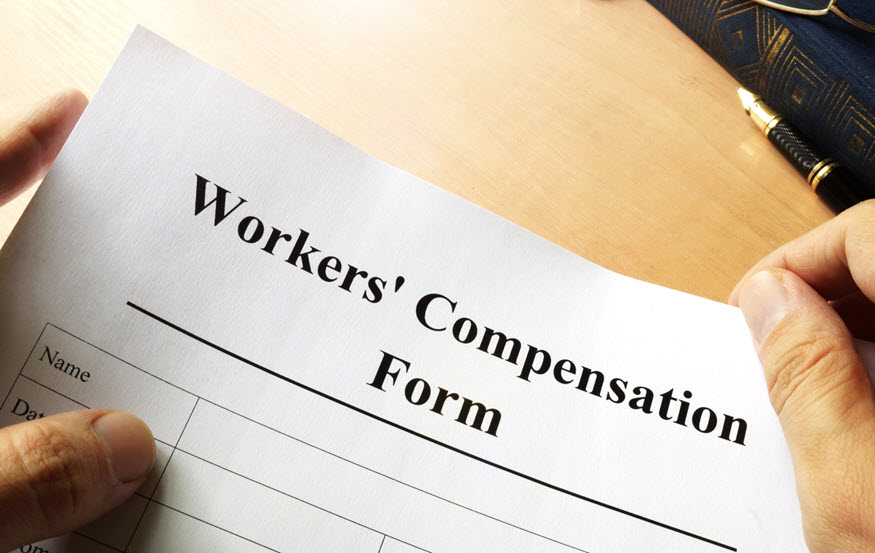Omaha Workers Comp Attorneys
Share this:
When a worker suffers a work related injury or illness, they may find themselves under tremendous financial pressure. Workers’ compensation claims can provide workers with access to crucial financial and medical support during their recovery. Workers’ compensation is a no-fault system whereby workers do not have to prove negligence in order to file a claim. However, not all workers’ compensation claims are approved.
Common Reasons Why Workers’ Compensation Claims Are Denied
- Failure to report injuries in good time
Injured workers are required to report their injuries to their employers promptly. There are strict deadlines for reporting injuries. If an employee fails to report their injury within the required timeframe, your claim may be denied.
- Lack of medical evidence
Adequate medical documentation is crucial for a successful claim. If the injured worker does not seek medical attention for their injury or illness promptly, does not follow through with recommended treatments or lacks the medical evidence required, it may result in their claim being denied.
- Disputes over whether the injury is work related
One of the most common reasons insurance companies deny workers compensation claims is that there is a dispute over whether the injury or illness is work-related. If the employer or insurance company believes the injury occurred outside of work or was a result of a pre-existing condition, they may reject the claim.
- Misconduct of employees
Workers compensation claims may be denied if it is found that there was some misconduct or violation of company policies on the part of the employee. For example, if the injury occurred while the employee was under the influence or drugs or alcohol, the claim may be denied. The insurance carrier may claim that the employee’s actions contributed to their injury.
- Contradiction with independent medical examinations
There are instances where employers or insurance providers may request an independent medical examination. This may be done to evaluate the nature and extent of the injury suffered by the worker. If the results of the examination contradict the worker’s medical record or claim, the claim may be denied.
- Statute of limitations
Like other personal injury claims, worker’s compensation claims are also subject to statute of limitations. If the injured employee fails to file their claim within the stated period, they risk having their claim denied.
- Disputes about employment status
Not all employees are eligible for workers’ compensation. It is not uncommon for injured workers to file a claim and discover that they have been categorized as independent contractors and not employees for example. Their employer can use this to argue that they are not eligible for compensation and their claim will be denied.
How You Can Protect Yourself
If you are a worker that has suffered a work-related injury, there are several steps you can take to protect yourself and improve your chances of successfully recovering compensation. Here are some key steps to take.
- Report your injuries to your employer promptly
It is important to report your injuries to your employer as soon as possible. This will ensure you’re not locked out by any deadlines. It will also help to speed the process up.
- Seek immediate medical attention
This is not only important for your health but also for improving your chances of success with your claim. Seeking immediate medical attention helps to establish a clear connection between the injury and the workplace. This provides crucial evidence for your claim.
- Keep records
It is important to have detailed records of everything surrounding the accident. This includes detailed information about the accident as well as of your injuries and their treatment.
- Follow the medical advice and treatment plan provided by your physician
Be sure to follow all medical recommendations and treatment plans as outlined by your healthcare provider. If you fail to stick to the treatment plan, you may give the impression that you did not take the necessary steps to get better or that your injury was less severe than was presented.
- Consult with an experienced workers compensation attorney
One of the best steps you can take to protect your rights and improve your chances of recovering compensation is consulting an experienced attorney. Attorneys specializing in workers’ compensation law can provide guidance and help you determine the best approach to take with your claim. They will explain your rights to you and represent you.
How Video Surveillance Can be Used to Deny Workers’ Compensation Claims
Video surveillance is emerging as a powerful tool in proving workers compensation claims. However, it can also be used to deny claims as shown below.
- Video surveillance can be used to contradict reported injuries. It can be used as evidence to challenge the validity of an injured worker’s claim.
- Video surveillance can be used to show activity inconsistencies. For example, an employee may be shown engaging in activities that they should not be capable of engaging in as a result of their injuries.
If you have any inquiries about workers compensation and the claims process, contact us to schedule consultation with an experienced attorney from our law firm.

Omaha Workers Comp Attorneys
A great way to reach us!

